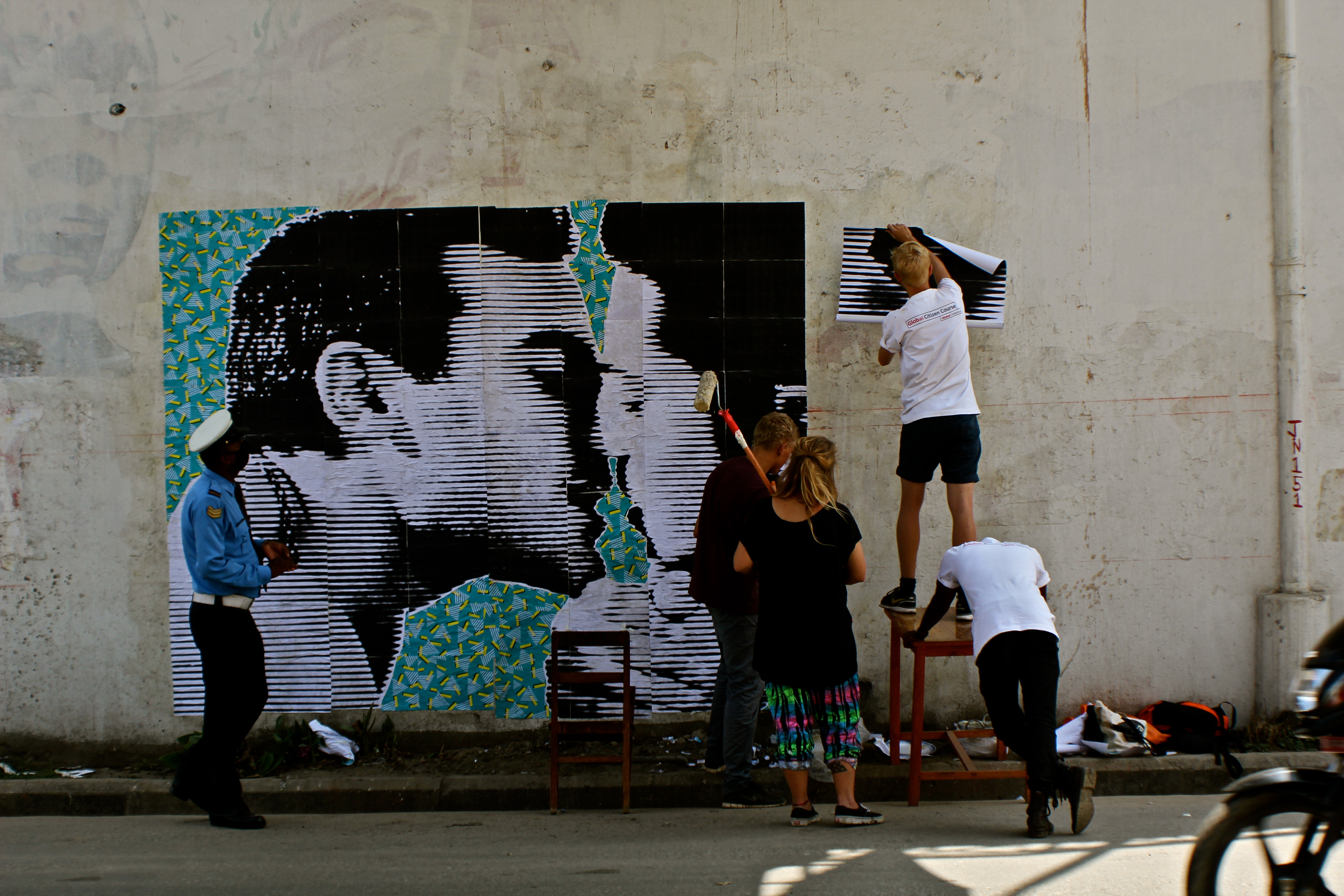
By Andreas, Emma, Laura and Shristi
As participants of the ActionAid’s Global Citizen Course we have a strong motivation for promoting social change. And what better way to do this than to shed light on the problematic fact that acceptance for the LGBTI-community is still lacking in Nepal. We feel that that social responsibility should not only be for country or family but for all members of society including sexual minorities. With the help of our manager Simone we have gotten in contact with BDS and hope that it will be possible together to achieve social change here in Nepal.
Thanks to BDS’ hard work throughout the last 13 years the government is moving closer towards an official recognition of sexual minorities in Nepal. But as seen before, fancy legal decisions on a governmental level do not necessarily equal rooting in society or change in practice. This seems to be the case in Nepal. On paper the country has achieved great progress compared to other South Asian countries, yet there is still a long way to go before a homosexual citizen can be fully accepted – and not merely tolerated. This includes acceptance from family, friends and local community so LGTBI-people can live with dignity as equal citizens.
Through our work with BDS it has become clear to us that one of the primary focal points should be promoting acceptance from within the family. Because frankly speaking, homosexuality and traditional Nepali family structure does not seem to match since marriage– most often arranged – is vital for securing the family legacy and reputation.
 Any deviation from the traditional pattern of sex roles thereby automatically equals a weakening of the family as a whole. It is in this area of conflict that homosexuals and transgender people risk being ostracized by family as well as local community because the family expects a traditional marriage between man and woman. By losing their family’s support they are greatly limited e.g. in their ability to apply for schools and jobs while simultaneously losing an important security net. In an attempt to contribute to the fight against ignorance, stigmatization and discrimination against the LGBTI-community we have started an awareness project promoting the message that love knows no gender.
Any deviation from the traditional pattern of sex roles thereby automatically equals a weakening of the family as a whole. It is in this area of conflict that homosexuals and transgender people risk being ostracized by family as well as local community because the family expects a traditional marriage between man and woman. By losing their family’s support they are greatly limited e.g. in their ability to apply for schools and jobs while simultaneously losing an important security net. In an attempt to contribute to the fight against ignorance, stigmatization and discrimination against the LGBTI-community we have started an awareness project promoting the message that love knows no gender.
We work with the slogan Maya Lie Bujhau and have chosen to use the cityscape creatively and visually as a way of integrating a more nuanced view on love into the everyday life of Kathmandu’s citizens. As we see it street art is mode of expression where one can communicate a powerful message in a very simple and permanent way. We have no expectations of “saving the world” within the project’s one and half week time span.
But as Global Citizens we are convinced that street art is an effective way to plant a small seed of change in the mind-set of people. This is our hope for the street art project: that the citizens of Kathmandu will walk by our art, register the message and thereby in time reflect more and more on what they have seen. Throughout the last week we have worked with paste-ups and stencils in public places and presented our project on BDS’s own radio show. As a way to finish the project off we have arranged an exhibition where we will display our work. Here BDS will present the work and objective of the organization, which will hopefully spark a debate concerning some of the issues that our project has dealt with.
Having lived now for nearly four months with 10 Nepali students, the Danish participants have experienced first hand how marriage plays a crucial and sometimes stressful part in their life. Yet they have also personally felt the care and love that characterizes the Nepali people. We are therefore all convinced that the fight for equality started by BDS sooner or later will mean that no member of the LGBTI-community will have to hide his or her identity, but can be fully included in the already versatile and embracing Nepali culture. At Global Platform Nepal we wish to encourage love and respect for every member of society – in short we believe that #LoveIsNeverWrong
Collective term for sexual minorities including Lesbian, Gay, Bisexual, Transgender and Intersexual.
Copyright © All right reserved to pahichan.com Site By: Sobij.